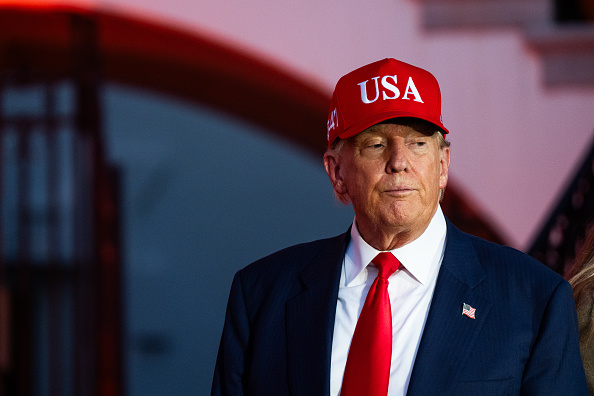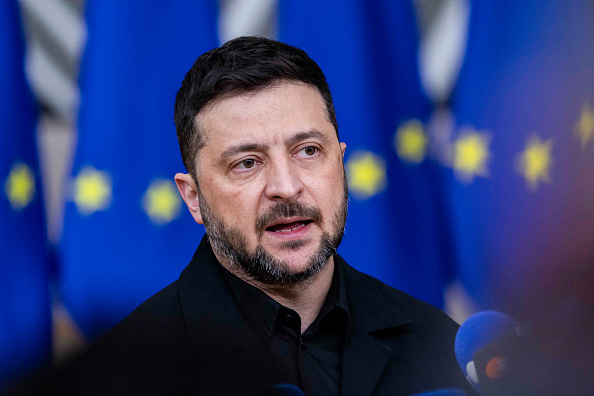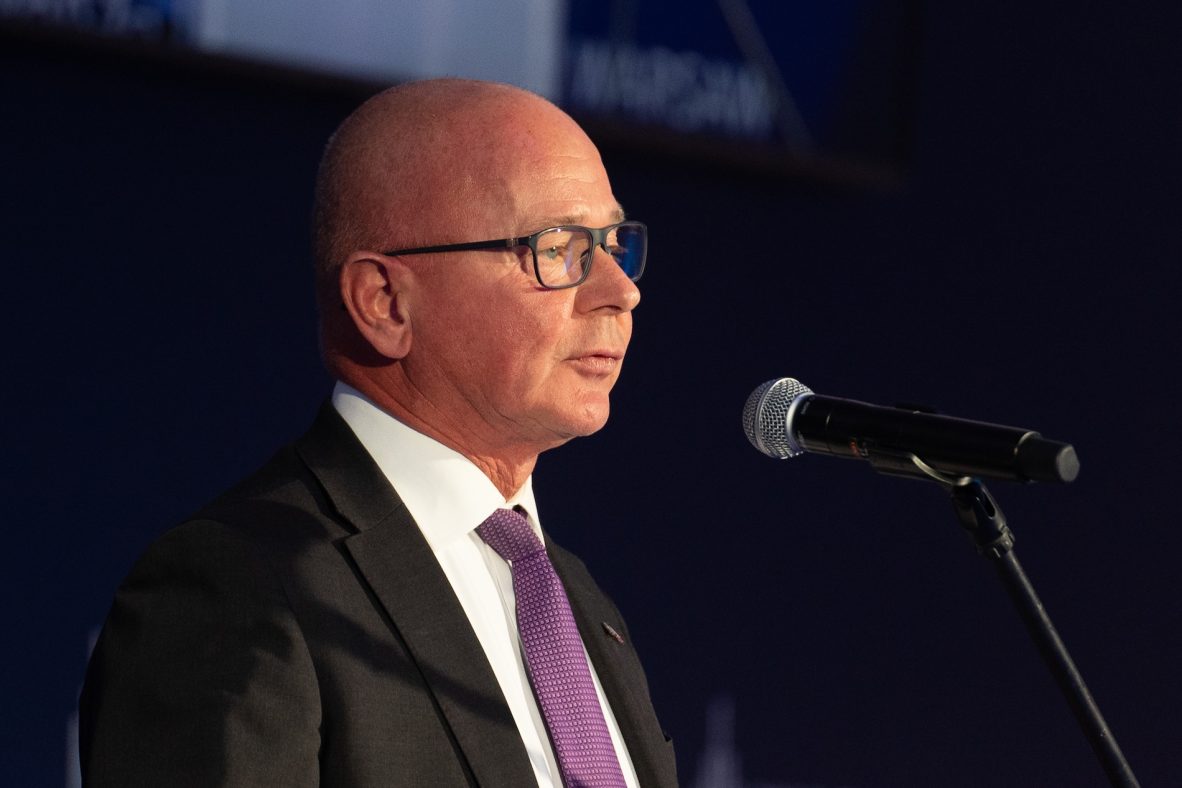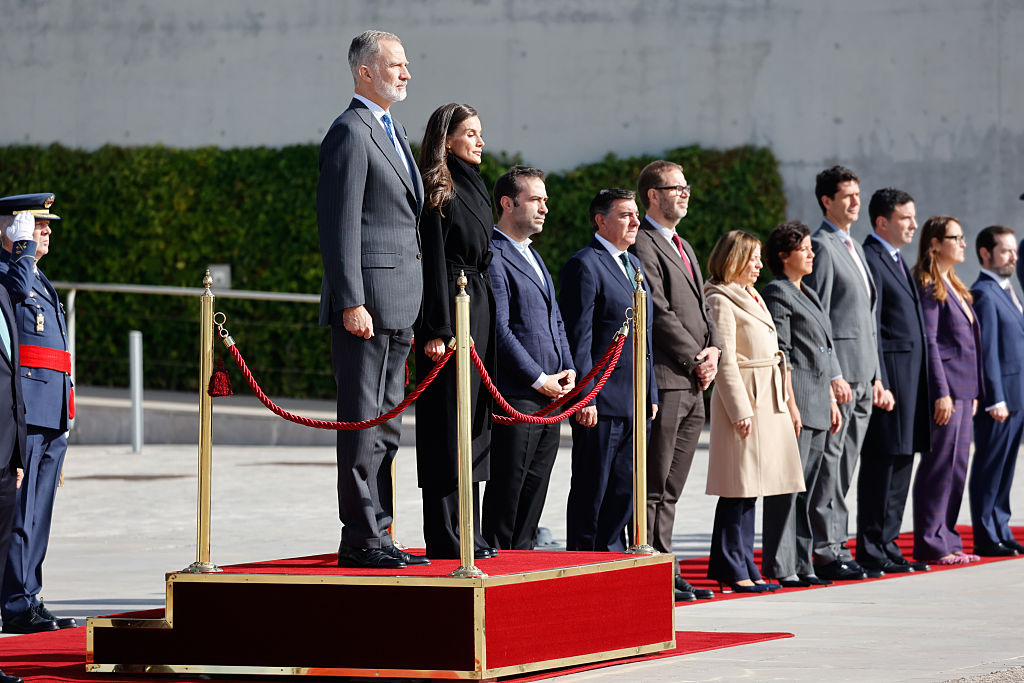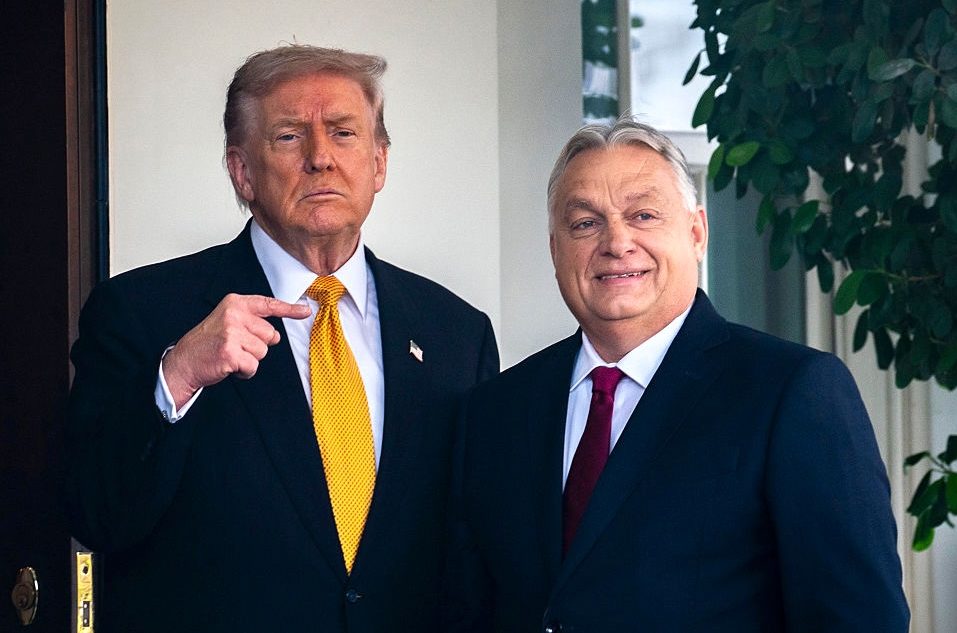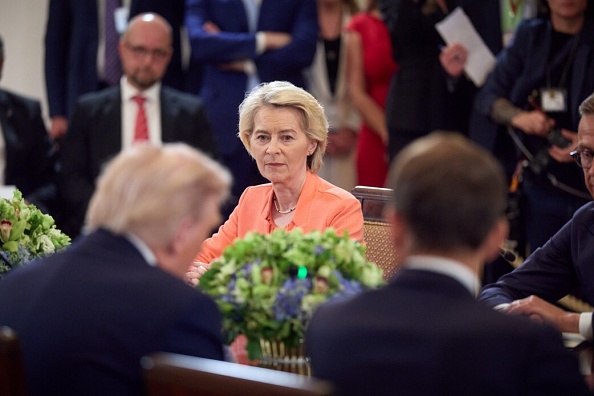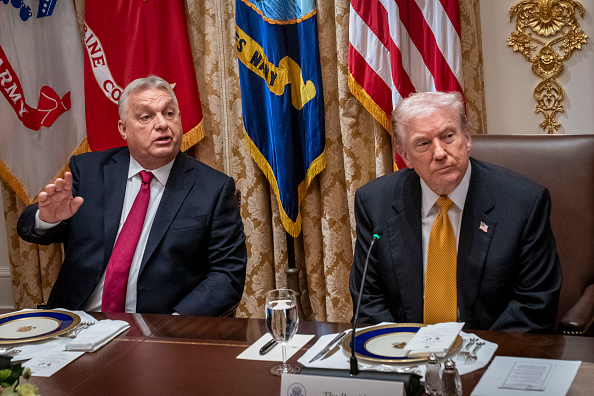EU must ‘de-risk’ faster from China, says von der Leyen
The European Commission president also warned that Brussels’ relationship with Beijing will only improve if China ceases its “unyielding support” for Russia and transforms its export-oriented economy.
The EU must accelerate efforts to “de-risk” from China, Ursula von der Leyen said on Tuesday, as she warned that Beijing’s control over strategically critical supply chains and support for Russia pose a growing threat to Europe’s economy and security.
The Commission president said China’s recent export restrictions on so-called rare earths – used to manufacture smartphones, electric vehicles, and other advanced technologies – show that her flagship policy of “de-risking but not de-coupling” from the world’s second-largest economy must “speed up”.
China dominates the world’s supply of rare earths, accounting for roughly 60% of global production and 92% of refining capacity.
“[W]e have learnt the lesson about the extent to which dependencies are vulnerabilities,” von der Leyen said in an address to the European Parliament in Strasbourg. “And how tech, trade and security are inherently linked. De-risking is simply a matter of European independence.”
China’s export controls – introduced after Donald Trump unleashed a full-scale trade war on Beijing earlier this year – have deeply alarmed European policymakers and businesses, with some industry groups warning that EU manufacturers have already been forced to suspend production.
The recent thawing of US-China tensions and Beijing’s efforts to alleviate the restrictions’ impact on Europe have also largely failed to assuage the bloc’s concerns.
Kaja Kallas, the EU’s top diplomat, told her Chinese counterpart, Wang Yi, last week that the controls continue to “pose significant risks to European companies and endanger the reliability of global supply chains.”
Von der Leyen – who excoriated Beijing during a G7 meeting in Canada last month – also warned that Europe’s relationship with China will only improve if Beijing ceases its “unyielding support” for Russia in its war against Ukraine and makes “tangible progress” towards improving market access for EU firms and addressing its growing trade surplus.
The EU’s trade deficit in goods with China grew to €305 billion in 2024, up from €297 billion in 2023, according to the Commission. China’s global trade surplus also grew to a record €843 billion in 2024.
The increase came despite growing efforts by the EU executive, which oversees the bloc’s trade policy, to protect EU firms from increasingly fierce Chinese competition, including by imposing tariffs on Chinese electric vehicles (EV). Brussels argues Beijing’s EV industry benefits from “unfair subsidisation.”
Von der Leyen said she will raise these concerns during an EU-China summit in Beijing later in July, where she and European Council President António Costa are set to hold meetings with Chinese President Xi Jinping and Premier Li Qiang.
(mm)
